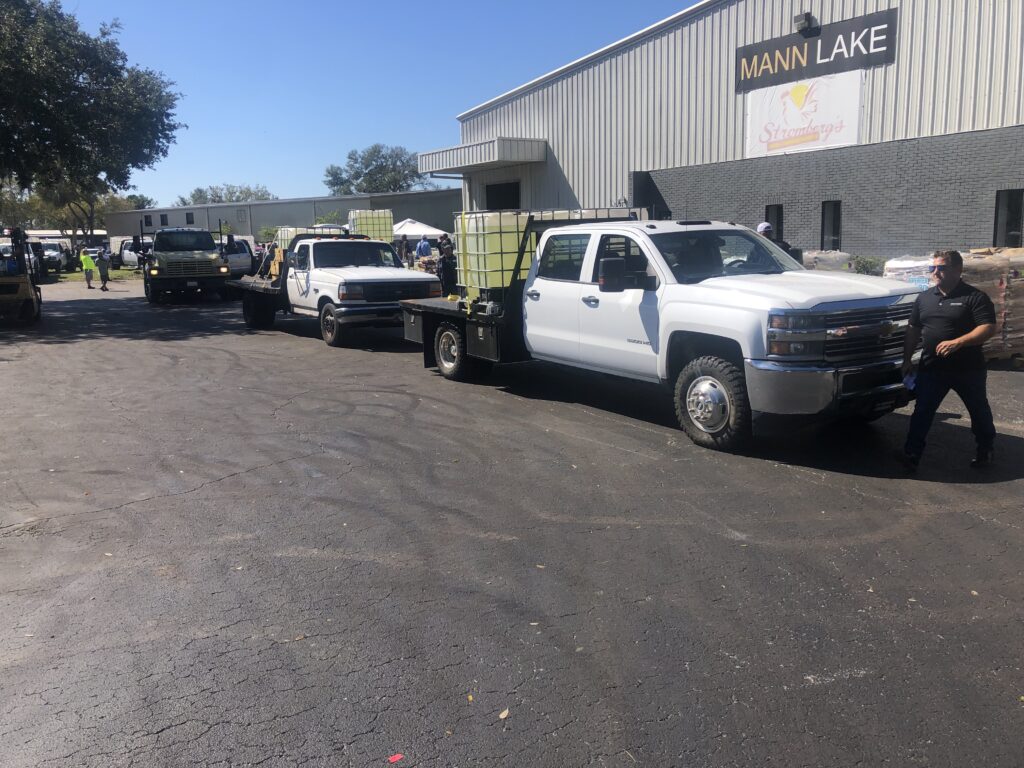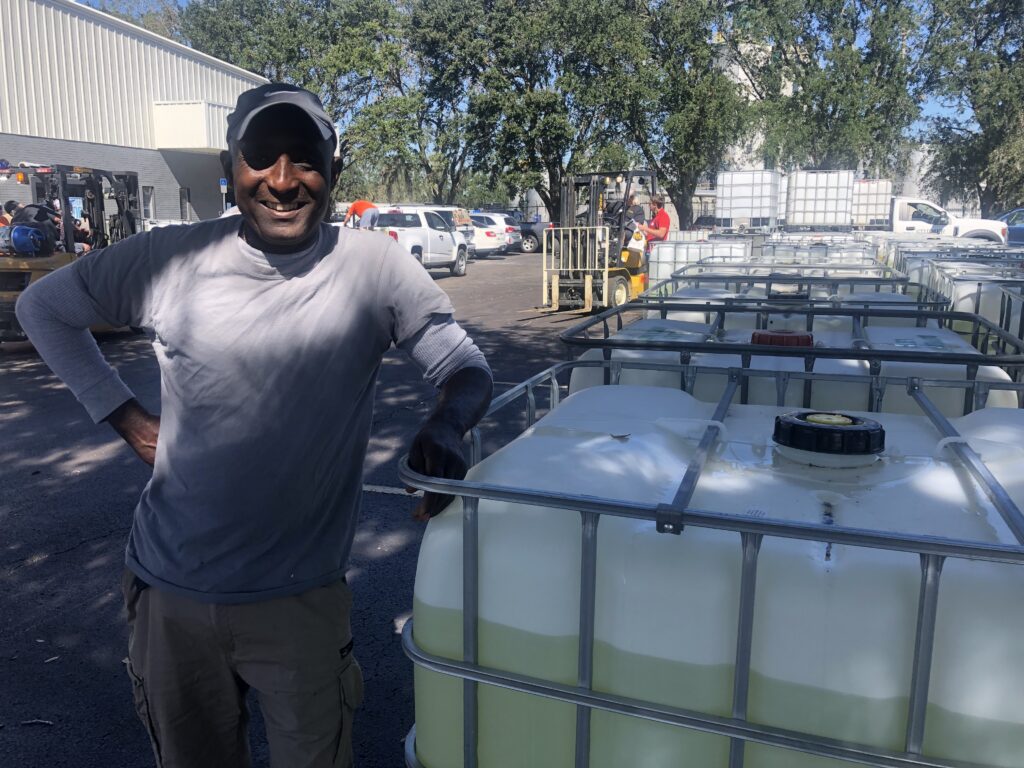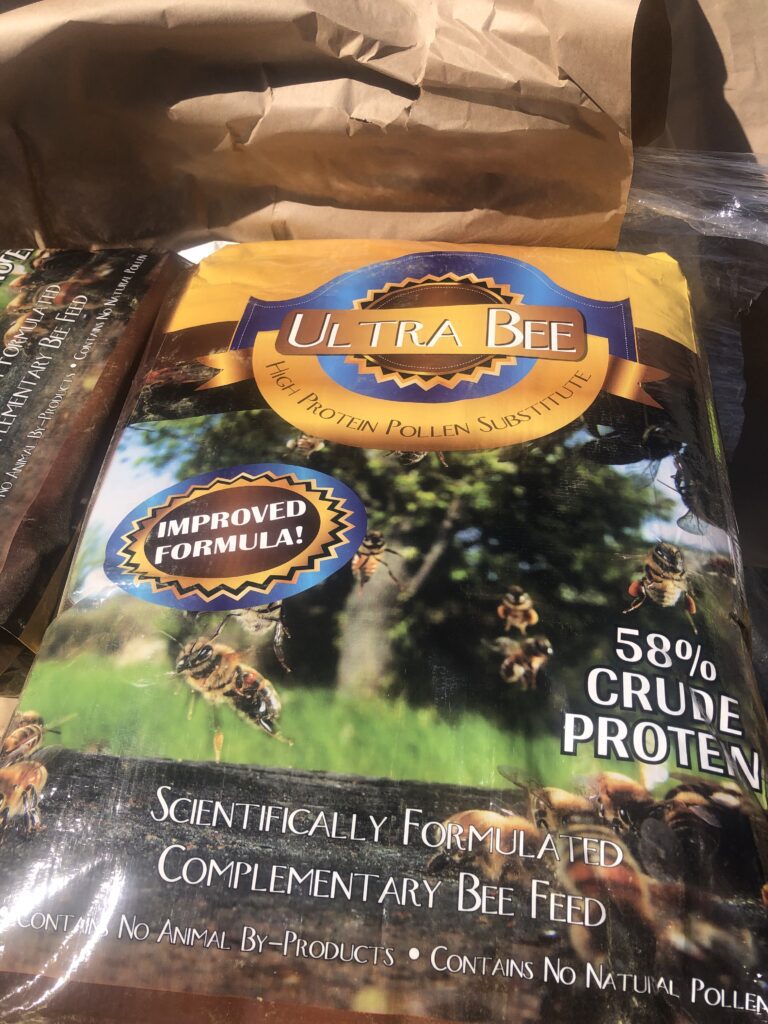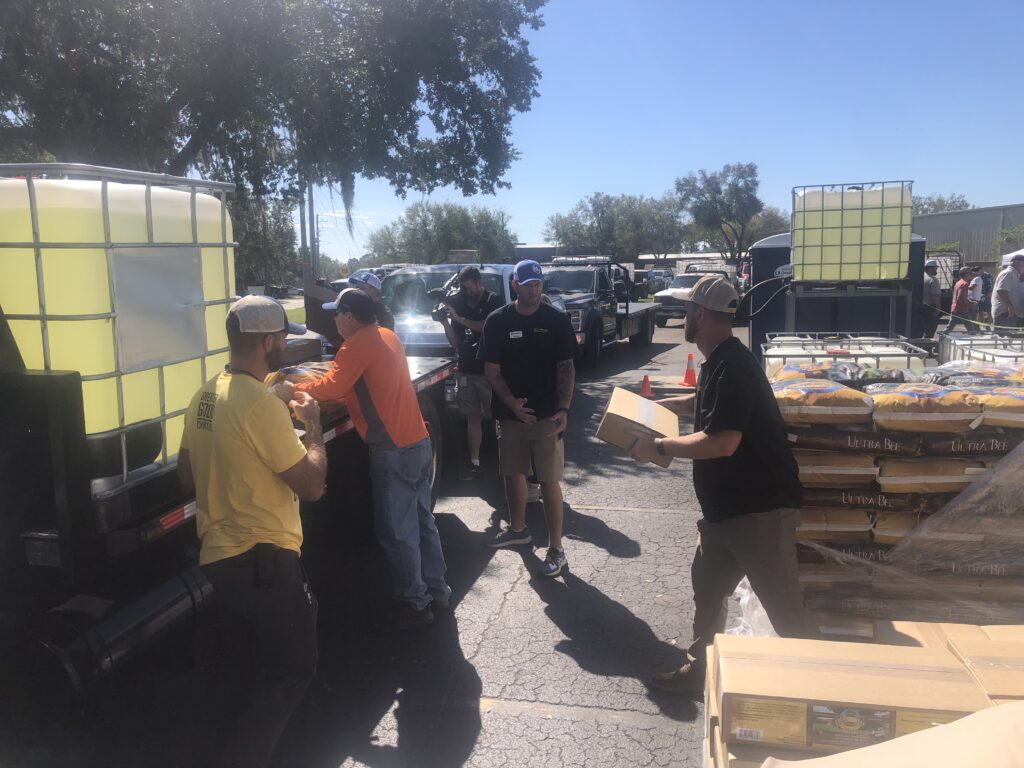Emergency Donation Event Organized to Help Florida Beekeepers Affected by Hurricane Ian
story and photos by PAUL CATALA
When Hurricane Ian came roaring through Southwest Florida in late September, its powerful winds and storm surge damaged more than homes and businesses. It disrupted or destroyed tens of thousands of bee colonies.
That damage, in turn, severely impacted the livelihoods of area beekeepers. Many feeders were destroyed, along with the bees’ natural forage, leaving at least 1.6 billion bees without any food sources.
That’s why Greater Good Charities spearheaded an emergency donation event with the help of Mann Lake, Cargill, the Florida State Beekeepers Association, UF/IFAS Honey Bee Research and Extension Laboratory, Florida Beekeepers Research Foundation Inc., and Apalachee Beekeepers Association.
On October 21, Greater Good Charities (GGC) — a Seattle-based international nonprofit that works to help people, pets, and international communities by mobilizing to respond to needs and crises — held a beekeeper relief effort. Mann Lake Bee in Winter Haven hosted the event, providing manpower, logistics, and lunch.
According to GGC, five tanker trucks filled with 275,000 pounds of syrup and 52,000 pounds of bee pollen substitute were delivered to the beekeepers most impacted by Hurricane Ian’s wrath.
John Peaveler, vice-president of field operations for GGC, helped to coordinate the relief effort throughout. He said this was the second statewide beekeeper relief event sponsored by GGC. The first was held in 2018 in northwest Florida after Hurricane Michael.
“Since then, we learned to grow in scale, and this is our largest bee-feeding event so far,” said Peaveler, who is based in Ligonier, Pennsylvania.
“Bees are particularly susceptible to hurricanes; they need flowers to feed and thrive.”
The event was one of three other donation events held along the coast of southwest, southeast, and northeast Florida throughout October.
Overall, an estimated 1,500 Florida beekeepers were impacted by Hurricane Ian, and approximately 100,000 hives were destroyed, according to GGC.
Brooke Nowak, GGC vice president of People & Planets Programs, said that by November 3, a total of 508,800 pounds of syrup and 96,900 pounds of bee-pollen substitute had been distributed in 2022.
As Nowak stood in the Mann Lake parking lot directing beekeepers to various sources, she said relief efforts were launched earlier in October in Arcadia and Fort Myers, where four tanker trucks delivered 55,000 pounds of syrup each. A total of seven Cargill trucks made stops at Mann Lake in the two weeks leading up to the emergency donation event.
Local and state beekeeper associations in Florida reported that surviving bee colonies require large volumes of sugar syrup and pollen replacement to survive.
“We (GGC) are unique in our help because we are able to go into an area where there’s no non-profit presence with such a set-up. Just seeing how happy the beekeepers are to be able to go out and feed the bees is great,” Nowak said.
“We want to get the food out to the bees; they have hardly anything right now.”
Mann Lake CEO Rob Wright calls beekeepers “the forgotten farmers in the economy.” Knowing some of them would have to restart their businesses from scratch, he decided to help by lending his property for the event.
“For some (beekeepers), it will be hard to get government assistance. Some weren’t directly impacted (by the hurricane), but foraging for the bees is gone,” he said. “We certainly can’t solve the problem, but we’re doing what we can. I’ve been pleased to see all the outreach.”
Eli Mendes, owner of Tropic Honey Bee Farms in Fort Myers, said being able to access outreach sources to support beekeeping businesses was what made the operation so critical. He said it will take at least three to five years for the state’s beekeeping industry — including his own business —to recuperate. His business lost roughly 500 of its 5,000 beehives.
Mendes, vice-president of the Florida State Beekeepers Association, has been in the beekeeping business for more than 40 years. The Alva resident said Ian’s winds blew lids off his hives, scattering bees and inundating the hives with water.
“That could’ve put me out of business, but we’ll survive, and (beekeepers) appreciate this effort,” he said. “We’ll take anything they can give us, whatever it is, it will benefit. It’s beekeepers helping beekeepers, and Greater Good Charities is helping make it all work.”
Another beekeeper, Wainsworth Brown of Lauderhill, lost about 640 of his 1,700 hives. He said he was able to salvage about 240 hive boxes, but the event helped him recover more quickly.
“The government (aid) is slow, so this is a great benefit,” Brown said. “This gives us a heads-up and quickens the road to recovery.”









